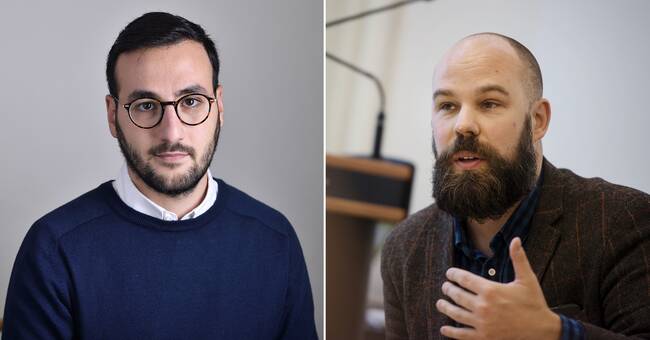The tax relief, which includes a reduction in corporation tax and support for investments, is part of the budget agreement between the government and the alliance parties.
The Left Party, however, is not particularly impressed by the new proposals.
Tony Haddou, a member of the Riksdag's tax committee, says that today's proposal only benefits large companies and will not create any new jobs.
Better then to invest in public investment and in an expanded welfare.
- I do not understand why companies should get even more money.
The government has kept the big companies under arms, now it is time for ordinary people and welfare to get theirs, he says.
Javascript is disabled
Javascript must be turned on to play video
Read more about browser support
The browser is not supported
SVT does not support playback in your browser.
We therefore recommend that you switch to another browser.
Read more about browser support
Hear Liberal Party leader Nyamko Sabuni.
Photo: Henrik Montgomery / TT
"Nothing that benefits companies in crisis"
The Sweden Democrats are also critical.
The party's economic policy spokesman, Oscar Sjöstedt, does not think that the relief in general and the reduction of corporation tax in particular are appropriate measures at the moment.
- We are already around the EU average in terms of corporation tax and if we look at the OECD average, we are below it, he says and adds:
- This is not something that benefits companies in crisis.
"Like selling the silverware"
Critical voices against the proposal are also heard from the Social Democrats.
Tax cuts will not give any stimulus to demand, says Daniel Suhonen, Social Democratic head of the think tank Katalys.
According to Suhonen, more money for companies will hardly lead to the increased demand that the economy needs, but only risks making companies richer.
- You can not force anyone to invest, says Suhonen.
Instead, he calls for large, government investments that, according to him, would boost the economy.
It can be about a new high-speed train or broadband expansion, but it can also be social reforms such as increased pensions or an expanded large family supplement.
An investment in welfare would also in the long run generate tax revenue, continues Daniel Suhonen, who would like to see reforms for at least 200 billion in the budget, in contrast to the 100 billion announced by the government.
Tax cuts only cost money without giving any long-term economic effects, in addition to draining public finances, he says.
- It's like selling the silverware to finance the food bill.
The autumn budget will be presented on 21 September.

